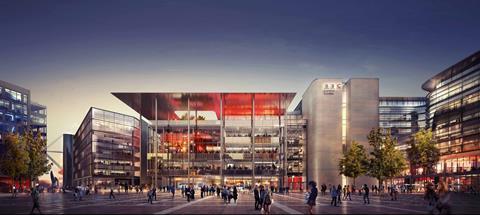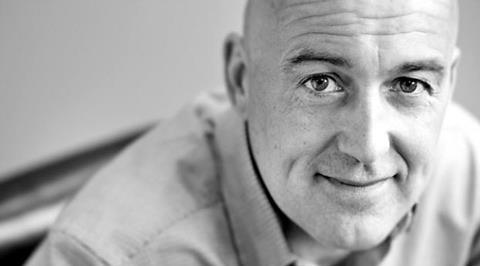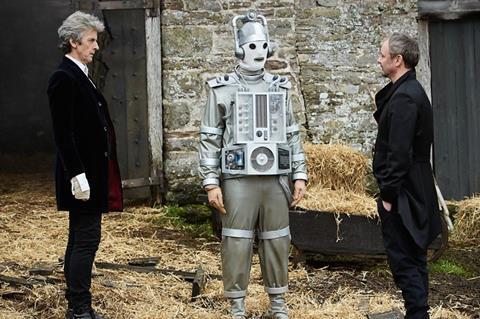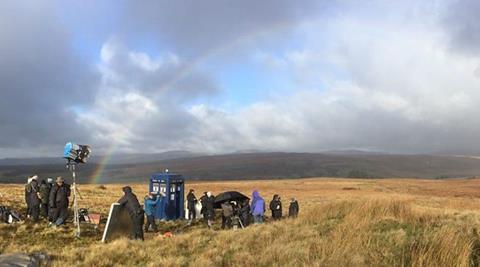BBC Wales is making the bold step of ditching traditional baseband transmission in its new headquarters which is currently being built in Central Square, Cardiff.

The £120 million building, scheduled to open at the beginning of 2019, will be the BBC’s first fully-IP facility, and one of the first such facilities in the world.
The infrastructure is being delivered by Grass Valley in partnership with Cisco Systems.
Andy Appleyard, the Workstream Lead for the programme, spoke about the decision to go with IP for the new facility.
“We’re using the term ‘live IP’ to differentiate from the file-based elements,” he said.
“It was obvious to us that IP has been the default for other parts of broadcasting up to now and would be used heavily in file-based production.
”We were watching building time scale closely – would this be the last of the baseband new builds, or the first of the new generation of IP new builds? Initially, we weren’t sure if it was realistic based on the time scale of the project, but as that clarified, work in the industry on ratifying standards gathered pace.”
According to Appleyard, the BBC asked the market for parallel bids for baseband and IP and viewed them through three lenses:
- Technology
- Cost
- People
A panel representing different areas of the BBC reviewed the project and passed a recommendation to a wider group of stakeholders.

BBC Wales Chief Operating Officer Gareth Powell acknowledges that this is, “a bold move. But proceeding with caution is the bottom line.
”We knew a few years ago we had the greenlight for Central Square and that it involved a total refresh of infrastructure.
“This is a significant investment that needs to work for the medium to long term.
“Live IP was initially bleeding edge, but working with that as a concept, and taking advice internally and externally, we decided that we could go ahead with it.
“If it was two years ago, a betting man would have taken a bet on a more traditional baseband solution,” said Powell.
BBC Wales Head of Technology Roger Crothers expanded on the reasoning behind the decision. “Why? Scalability and future proofing.

“We could have put in HD SDI, but the longevity of each new standard seems to be reducing,” said Crothers.
“Other reasons – although we have limited availability to broadcast 4k over the terrestrial system, online may be the way we deliver it. We’re already shooting Doctor Who in 4K, and we need to move that around the building. Also, as we’re moving to UHD and IP contribution, having a fully IP infrastructure means that there needs to be less glue to connect things,” he said.
“It allows us to be format agnostic, we can do lots of different formats including 360.”
Crothers echoes Powell’s emphasis on proceeding with caution. “We will be leading edge, we don’t want to be bleeding edge. Kit is available – we’ve seen it working. But only in the core – we haven’t seen it end to end yet,” said Crothers.
“There will still need to be some IP to SDI conversion to connect legacy kit, but Wales is doing a full end to end upgrade, so there’s less legacy kit to integrate.”
All three emphasised the “future proofing” aspect of the approach.
“It is an inevitable fact – this will be the only option in the not too distant future,” stated Appleyard.
“It’s far from clear that IP is more expensive than baseband. The pricing is very different – a swing from heavy capital cost to revenue and support costs,” he continued.
“The quantity of UHD needed for live production within the building is unclear at the moment, but the cost of UHD over baseband is not supportable,” said Appleyard.
Crothers concurred, “The lease on the building is for 20 years. If we had gone for SDI, we would have had to replace it with IP in 10 years anyway.”

Crothers also spoke about the overall cost of ownership for the new technology.
“We were told that there was a premium to IP, but it’s difficult to do a direct comparison – you’re not building a similar infrastructure,” he said.
“Overall, there was a 10% premium, but since we don’t have to rip things out in five year’s time, that’s saving 100%. Also, it’s easier to incrementally upgrade – we don’t need to do a wholesale refresh because it’s modular in nature.”
New roles
The team behind the Central Square project is also considering the new organisational structures, roles and skills that will be needed in the new building, and the move to live IP is viewed as a major factor in that work.
Louis Clement, the Workstream Lead for Organisational Design, expressed that their biggest concern is how different the technology terminology and concepts are compared to SDI.
“Our engineers are traditional broadcast engineers – they understand the sequential, physical way of diagnosing a fault,” explained Clement.
“With IP, it works completely differently, it’s a different mind-set. Would the change be too much, and would the staff have the appetite to make the change?” he said.
According to Clement, discussions with vendors and other broadcasters has shown that the best approach is to train a broadcast engineer in the new technologies, rather than the other way around.
“It’s mainly in the support side of things,” he explained. “In the MCR world, things aren’t all that different as far as managing the systems – the role doesn’t change that much. It’s when there’s a fault and it needs to be fixed that things have changed significantly.”
Crothers spoke of the potential impact on operational staff as well.
“Their ability to employ operational workarounds the way they do now will diminish. Even things like moving a camera around will require a different understanding of networks and connections.
”Device discovery is very important, but there will still be some manual mapping required. It makes moving equipment around more complex.
”A camera has an IP address and makes specific connections – you can’t simply plug it in and expect it to appear,” he said.
“More people in the production chain will need to understand IP. Engineering staff will have to take on the burden of some of the things that operational staff are doing now.”
Vendor choice
The decision to go with IP was made in March of this year, then work began on the choice of vendor.
According to Appleyard, there was a major driver in the selection process: “A big point for us was commitment to emerging standards - a vendor that would contractually commit to SMPTE 2110 and AMWA NMOS IS04,” he said.
“We were pleased to see that we had more than one vendor that would commit to that. We also needed a vendor that had connections to the industry. Grass Valley is fronting Cisco – rather than having a pair of relationships to manage,” said Appleyard.
Grass Valley Project Manager Martyn Humphreys expressed confidence in the new technology.
He said: “We don’t necessarily see it as that bold a move; we’ve got this technology working with several customers already. It’s a very safe way of doing it, in fact.
“Just under a year ago we launched a couple of OB trucks with Arena TV, and Telemundo in Florida is working with IP on the same scale as the BBC will,” he said.
There are some unique challenges, according to Humphreys.
“The biggest challenge is seeking to implement emerging standards, such as SMTPE 2110,” he said.
“Whilst we are comfortable we can support this, it may lead to interoperability challenges with other manufacturers. This is an entirely new way of thinking about how to manage interoperability, but there’s a great team in the BBC, and a great team on our side and we are working together to manage the challenges and the implementation.”
Read more Blog: How the industry is aligning on IP
























No comments yet